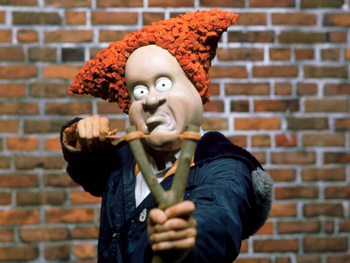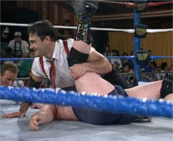|
Did this movie have the “no animals were harmed” disclaimer? I can only assume some animals were harmed when they did the explosion.
|
|
|
|

|
| # ? Jun 8, 2024 07:35 |
|
Joke Miriam posted:Did this movie have the “no animals were harmed” disclaimer? I can only assume some animals were harmed when they did the explosion. I don't see them on the list. Barbie is there tho.
|
|
|
|
Mooseontheloose posted:I saw it yesterday and here are my thoughts: I was trying to find some information on Truman's reflection on using the bomb. I found this collection of documents relating to Harry Truman on the atomic bomb from the National Archives. Not sure if you found it already, but here it is: https://www.trumanlibrary.gov/library/online-collections/decision-to-drop-atomic-bomb
|
|
|
|
Bogus Adventure posted:I was trying to find some information on Truman's reflection on using the bomb. I found this collection of documents relating to Harry Truman on the atomic bomb from the National Archives. Not sure if you found it already, but here it is: Well, I have some reading to do.
|
|
|
|
IIRC Truman's perspective was that he didn't like the idea of killing so many people, but his primary job was to end the war with as few American casualties as possible - and thus from his position, not using the bomb when he had access to it would have been unjustifiable.
|
|
|
|
From what I read in the archives, Truman did feel justified using the bomb at the time because the other option presented to him by the generals were that Japanese would only surrender by a land invasion which would cost 250k American military casualties and anywhere from 250k to 1m Japanese casualties. He may have felt that the Soviets or other countries would never make an atomic bomb, but he also believed atomic warfare was unthinkable because it caused casualties to both military and civilians. He felt that you can isolate military targets with conventional weapons (and Truman included gas and biological weapons into that, which I want to include because it shows what he considered acceptable), but atomic weapons just wiped cities off the face of the Earth. There's also a pretty good WaPo article that goes into the Oppenheimer's meeting with Truman. It's paywalled, so here is the link and a copy of the article. https://www.washingtonpost.com/history/2023/07/21/oppenheimer-truman-atomic-bomb-guilt/ quote:The atomic bomb dropped on Hiroshima had pulverized life and changed the world, and J. Robert Oppenheimer celebrated by clasping his hands like a prize fighter, soaking in the roaring applause from the crowd in Los Alamos, N.M. It was a thrilling time for Oppenheimer, who told the crowd in August 1945 in the place where the bombs were designed and built about his only regret: not that thousands of people had been killed, but that “we hadn’t developed the bomb in time to use it against the Germans” earlier in World War II.
|
|
|
|
It's more that Truman never made a 'decision' to use the bomb and only arrived on that narrative after it had been dropped, both as a way to talk to the public and a rationalization of his role as president. His name isn't even on the bombing order, the final authorization was by the Acting Army Chief of Staff. - Everyone working on the project aside from some of the scientists assumed they were going to be used, especially Groves (who needed a success after spending 2 billion dollars) - Truman assumed that FDR would have been in favor of dropping it and let current work go on without interference - In trying to spare Kyoto, Stimson accidentally convinced Truman that Hiroshima was a military base and not a city - Truman was very surprised at Hiroshima being a city and how Nagasaki was bombed only three days later, and the day after Nagasaki clarifies that his express permission is needed for any further bombs.
|
|
|
|
Counterpoint: https://www.latimes.com/opinion/story/2020-08-05/hiroshima-anniversary-japan-atomic-bombs   
|
|
|
|
MJeff posted:This is a good companion piece to Oppenheimer if you're just crazy for more BOMB content. Just want to revive this post from earlier in the thread given the current discussion. I found this very interesting. Who knows how accurate it is being on Youtube, but the guy seems to at least use lots of direct sources. For people who are curious about who knew what, and when, and why the decisions were made, it's a really good play-by-play of the month leading up to the bombing.
|
|
|
|
I don't mean to dump more primary sources, but it's interesting to see what people wrote during the time regarding the bomb. Here is a bunch of stuff from the National Security Archives, including memos from Oppenheimer and Groves. You'll have to scroll past the intro for the documents, but they are all linked as pdfs. https://nsarchive.gwu.edu/briefing-book/nuclear-vault/2020-08-04/atomic-bomb-end-world-war-ii
|
|
|
|
From what I’ve read, citing a specific cause of surrender seems inconclusive among historians. There’s a lot of hypotheticals of what if this didn’t happen. Everything makes it seem like those bombs were dropping no matter what. In the Day After Trinity, there’s a clip of Groves talking about what a disaster politically it would have been for a party when the public found out the military has a special weapon that could have saved troop lives but chose not to use it.
|
|
|
|
Also all connects to that great scene in the film where Oppy rides in on his horse looking like a horseman of the apocalypse and convinces the meeting scientist about the good of dropping the bomb once and how it would only have to happen once.
|
|
|
|
The video I quoted above is a corrective to some of those common explanation. I’m particular, he makes a pretty convincing case that the US had no intention/need to invade the island because the blockade was swiftly choking the country to death. The US basically dropped the bomb to accelerate the surrender of Japan and to avoid Russian incursions in Manchuria.
|
|
|
|
I need to watch that video but 2 hour YouTube is intimidating.
|
|
|
|
look we had to have the bomb so we could have godzilla, idk what the big deal is
|
|
|
|
Been collecting these    
|
|
|
|
Why do people need to throw up? Did they not know that JFK was a senator?
|
|
|
|
Millenials and their need to overreact for attention is annoying as hell, if you were upset just say that no need for the hysteria.
|
|
|
|
Gaius Marius posted:Millenials and their need to overreact for attention is annoying as hell, if you were upset just say that no need for the hysteria. Tbf I did feel incredibly uncomfortable walking out of the cinema. Something about the sound design in that last scene cut deep.
|
|
|
|
Gaius Marius posted:Millenials and their need to overreact for attention is annoying as hell, if you were upset just say that no need for the hysteria.  This is me after posting those tweets thinking that it was heartening to see people respond so intensely to the artform of cinema but instead all it did was make you upset.
|
|
|
|
Al Cu Ad Solte posted:
Thank you for posting them, love to see people moved by cinema
|
|
|
|
mfw seeing a curmudgeon complaining about people posting online
|
|
|
|
I also don't get the overreaction. I watched it last night and there's almost nothing I didn't already know besides Strauss' existence and a couple other things. Anyway I watched in Cinemark XD because my local IMAX always have the good seats taken. Am I missing out much?
|
|
|
|
I too watched in XD due to schedule. Considering rewatching in imax soon
|
|
|
|
Just got out of a 70mm screening (I’d seen it earlier) and while it didn’t gain a ton it was nice to see that format at last. Murphy should get all the awards, the way he makes Oppenheimer both incredibly charismatic and incredibly standoffish- probably close to the reality but not a lot of people could pull that off. The entire cast though, I’d be interested in seeing how they came together- Nolan obviously had some people in mind from the start and he has his regulars but it’s also loaded with “Hey I’ve seen that guy” folks.
|
|
|
|
Maxwell Lord posted:Just got out of a 70mm screening (I’d seen it earlier) and while it didn’t gain a ton it was nice to see that format at last. Teller is an underrated star in that movie. He's such an rear end in a top hat. It's great. Also, I started laughing when I saw Dastalmachian in it because I didn't expect it. He rules, and it's wild to see him go from random Joker thug to all the different characters he's played throughout the years.
|
|
|
|
Teller's really no more an rear end in a top hat than Opie is. Both are so motivated by their own pet projects and the prestige they would attain as becoming father of a Bomb they don't reckon with the reality of the situation until after the genies is out of the bottle. Opie is just more charismatic and diplomatic about his egomania
|
|
|
|
Gaius Marius posted:Teller's really no more an rear end in a top hat than Opie is. Both are so motivated by their own pet projects and the prestige they would attain as becoming father of a Bomb they don't reckon with the reality of the situation until after the genies is out of the bottle. Opie is just more charismatic and diplomatic about his egomania I'm not comparing one over the other as historical figures, just saying that the actor who plays Teller kills it in the movie. His whole bit where he explains that he is bored by the proposed fission issues and mentions fusing deuterium would be more destructive is fantastic. A lot of the characters played by bigger names like RDJ, Damon, Blunt, Hartnett, even Oldman as Truman, likely get more recognition due to who plays them. Benny Safdie hasn't been in much, but he owns in every scene he's in because he plays him as such a weird rear end in a top hat. 
|
|
|
|
Safdie's transition from Director to noted and successful character actor is strange, but I can't complain
|
|
|
|
The one that really got me was his appearance in Obi-Wan Kenobi. He's an odd looking but compelling guy so I'm glad to see him getting more acting work.
|
|
|
|
Josh Hartnett getting revived will be a strange legacy of this movie. Also David Krumholtz did a great job as well.
|
|
|
|
Gaius Marius posted:Safdie's transition from Director to noted and successful character actor is strange, but I can't complain bro is working supremely less hard as an actor, i think he's the only director ive heard of who was proud to boom mic operate on set, cuz it let him stay closer to the actors and immediately have the feedback as to if a take is working. the safdies shoot generally far away with long lenses+lots of closeups, so i imagine every scene in their movies with just one of the directors staring the actor down just out of frame lol. obviously that's the sort of small-team thing you'd expect from indie guys but from what i understand he was still doing two jobs on set even on the rpatz movie. i think he's also one of the chief editors too, sharing duties with third safdie bro Ronald Bronstein i think he suddenly had a viable career just acting (he's got kids and is apparently a family man) and had to work maybe 1/5th as hard, so its actually a no-brainer decision to just coast on that while he can atrus50 fucked around with this message at 16:11 on Aug 11, 2023 |
|
|
|
Gaius Marius posted:Safdie's transition from Director to noted and successful character actor is strange, but I can't complain he's the GOAT
|
|
|
|
atrus50 posted:bro is working supremely less hard as an actor, i think he's the only director ive heard of who was proud to boom mic operate on set, cuz it let him stay closer to the actors and immediately have the feedback as to if a take is working. the safdies shoot generally far away with long lenses+lots of closeups, so i imagine every scene in their movies with just one of the directors staring the actor down just out of frame lol. obviously that's the sort of small-team thing you'd expect from indie guys but from what i understand he was still doing two jobs on set even on the rpatz movie. i think he's also one of the chief editors too, sharing duties with third safdie bro Ronald Bronstein It's always interesting when people get what's a dream job for a lot of people and think "Actually, this sucks."
|
|
|
|
Watched this again today in imax this time, and again I was amazed by how quickly the 3 hours go by. I thought 3rd act might feel longer, but nah it’s fun to see RDJ in action and some great visual effects with Oppenheimer and his visions. There’s a nice theme of Oppenheimer and sinning and getting various results. The first is the poison apple, but he gets to take this one back and no harm done. Later after he sees Tetlok for the final time and he learns she dies, his wife finds him despondent in New Mexico woods. She scolds him that he doesn’t get to commit the sin and then ask that everyone feel sorry for him. She tells him he’s got responsibility to the people there. Finally of course the test and bombing of Japan, after which Oppy complains to Truman which again goes badly. So he tries to lead policy once more. It’s all so well constructed.
|
|
|
|
A friendly reminder that if you still plan to watch (or rewatch) this on film, go somewhere that regularly exhibits this kind of thing instead of a random one-off in the suburbs. Getting reports that the 70mm print at the AMC in Paramus NJ has visible tear streaks running through all reels and the gate's completely unstable.
|
|
|
|
Mooseontheloose posted:Josh Hartnett getting revived will be a strange legacy of this movie. Oh yeah, I had forgotten about that. When I saw him I tried to remember the last things I saw him in and all I could come up with was Sin City and 30 Days of Night.
|
|
|
|
I last saw him in Oppenheimer. And before that I saw him in Black Mirror.
|
|
|
|
Sad seeing people just come out and admit they didn't go see Operation Fortune Ruse de Guerre.
|
|
|
|

|
| # ? Jun 8, 2024 07:35 |
|
Gaius Marius posted:Sad seeing people just come out and admit they didn't go see Operation Fortune Ruse de Guerre. It's a minor Ritchie and Hartnett wasn't particularly good in it.
|
|
|




























